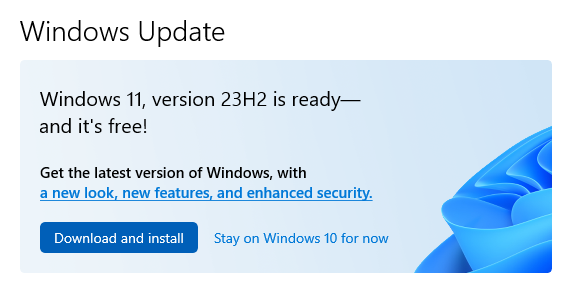In Portuguese we have the word “venenoso” for “poisonous” and “peçonhento” for “venomous” (i.e. something with a “peçonha”, any toxin substance produced and injected on another animal). But we often use “peçonhento” e “venenoso” interchangeably (e.g. “cobra venenosa”).
Daemon Silverstein
I’m just a spectre out of the nothingness, surviving inside a biological system.
- 0 Posts
- 27 Comments

 8·5 days ago
8·5 days agoIsn’t a file browser needed for browsing the saved documents and spreadsheets?
Not to mention that office suites (such as WPS, OpenOffice and LibreOffice) will inevitably pop up a file browser when the “Open” or “Save” buttons/menu items are clicked.

 7·5 days ago
7·5 days ago/r/unexpectedfactorial (2!)

 2·7 days ago
2·7 days agoIn Brazil, there are regional variations and word/phrasing variations as well.
Formally:
- “Você ligou para o número errado” (you called the wrong number)
- “Você discou o número errado” (you dialed for the wrong number )
- “Você está ligando para o número errado” (we call it the “gerúndio”, something like “-ing”, as in “You’re calling the wrong number”)
Informally/casually:
- “Discou errado, irmão” / “Discou errado, mano” / “Discou errado, cara” / “Discou errado, mermão” (“dialed wrongly, bro”, with “bro” variations across Sao Paulo and Rio de Janeiro (the latter being the latter variation))
- “Tu ligasse errado, visse” (some Brazilian northeast states, something like “Thou calledsth wrongly, see?”)
- “Né aqui não, moço” (Minas Gerais, something like “It’s not here, boy”)
There are lots of other variations and I’m not really aware of all of them.
Also, the way I answer depends a lot on multiple factors such as: my emotional state (wrath? Sad? Okay? Excitedly happy (rarely)?), my current pace (rushing? Chilling?), among others. Generally, “Não é aqui não” (the Minas Gerais variation without the ending “moço” and a fully spelled “Não é” instead of “Né”, because I’m originally from interior of São Paulo state but highly culturally influenced by a part of the family from Minas Gerais).
On my laptop, Brave for non-“personal” things (such as fediverse, SoundCloud, AI tools, daily browsing, etc) and Firefox for “personal” things (such as WhatsApp Web, LinkedIn, accessing local govt. services, etc). On my smartphone, Firefox for everything (I disabled the native Chrome).
I’ve been using Brave in a daily basis because it’s well integrated with adblocking tools, especially considering the ongoing strife regarding Chromium’s Manifest V2 support, where Brave nicely stands keeping its Manifest V2 support independently of what Google wishes or not.
Firefox is also good, but I noticed that, for me, it has been slightly heavier than Brave. So I use it parallel to Brave, for things I don’t need to use often. For mobile, it’s awesome, as it is one of the few browsers that support extensions, so I use Firefox for Android, together with adblocking extensions.

 24·10 days ago
24·10 days agoHave a proper radio ham license. Buy a 40-meter transceiver and a software defined radio dongle. Convert your code into esoteric programming languages such as Whitespace and Brainf, then spell it. “Plus, plus, next, plus, dot, open bracket, next, …”. Transmit your spelling over 40-meter band, while a receiver across the continent is tuned to the frequency. Ask it to repeat and record the QSO. Set the SDR recorder to I/Q packets instead of demodulating AM. Publish it as an audiobook.

 4·16 days ago
4·16 days agoRegarding privacy, PGP is far better than out-of-the-shelf IM-embedded encryption, if used correctly. Alice uses Bob’s public key to send him a message, and he uses his private key to read it. He uses Alice’s public key to send her a message, and she uses her private key to read it. No one can eavesdrop, neither governments, nor corporations, nor crackers, no one except for Alice and Bob. I don’t get why someone would complain about “usability”, for me, it’s perfectly usable. Commercially available “E2EEs” (even Telegram’s) aren’t trustworthy, as the company can easily embed a third-party public key (owned by themselves) so they can read the supposedly “end-to-end encrypted” messages, like a “master key” for anyone’s mailboxes, just like PGP itself has the possibility to encipher the message to multiple recipients (e.g. if Alice needs to send a message to both Bob and Charlie, she uses both Bob’s and Charlie’s public keys; Bob can use his own private key (he won’t need Charlie’s private key) to read, while Charlie can use his own private key to do the same).
You didn’t specify which problem or which thing that broke. However (and based on my previous experiences on that matter), one could face a problem regarding package PGP/GPG signatures upon trying to update. This is because
archlinux-keyringis not being updated before the signature checking. That said, a better approach is to always updatearchlinux-keyring(sudo pacman -S --needed archlinux-keyring) before anything else (sudo pacman -Syu). This way, you guarantee to be up-to-date with developer signatures, needed for pacman to check the validity for every package to be updated/installed. There’s also apacman-keycommand, but I never had to use that.

 302·19 days ago
302·19 days ago“If you want a picture of the future, imagine a boot stamping on a human face – for ever” (1984 - George Orwell).
They can’t without the given permission from the browser to do so. While they can indeed track the mouse, when they try to access mobile motion sensors (I’m considering a CAPTCHA inside a webpage being accessed through a mobile browser such as Firefox mobile or Chrome for Android), they need to use an HTML5 API that, in turn, will ask the user for permission, something like “This site wants to use sensor motion data. Allow or block?”
Nowadays there are some really annoying CAPTCHAs out there, such as:
- “Click over the figures that are upwards/downwards” and various rotated bears
- “Rotate the figure until it matches the given orientation” and a finger pointing to some random direction, as well as rotation buttons that don’t work the way you would mathematically expect them to work
- “Select all the images with a bicycle until there are none left” and the images take centuries to fade away after you click them
- “Select all the squares containing a bus” and there are squares with the very corner of the bus that make you wonder if they are considered as part of “squares containing A bus”
- “Fit the puzzle piece”, although this is the least annoying one
In summary, the CAPTCHAs seemingly are becoming less of a “prove you’re not a robot” and more of an forced IQ test. I can see the day when CAPTCHAs will ask you to write down a Laplacian transform for the solution f(x) to the differential equation governing the motion of a mass considering the resistance of air and aerodynamics, or write down a detailed solution to the P versus NP problem.

 3·24 days ago
3·24 days agoI’m Brazilian so I generally use public Brazilian (Portuguese) groups, publicly available through Telegram searches such as “Livros grátis” (“Free books” in Portuguese) or “livros pdf” (“pdf books”). There probably are similar anglophone groups as well.

 1·24 days ago
1·24 days agoPGP/GPG encryption. It works with any IM, social network, anything (at least if the platform/program/app/medium allows for sufficiently lengthy messages so to carry the encrypted payload). There are some IMs that bring PGP/GPG natively, as well as extensions for existing IMs that also adds PGP/GPG feature, but PGP/GPG doesn’t need to be native to the app to convey encrypted messages, it’s a base64 text. It’s really an E2EE.

 7·25 days ago
7·25 days agoFirstly, I search for the book among Telegram book groups. Then, Google/DDG/Bing/Yandex results for “[title of the book i’m searching] filetype:pdf”. If neither yields the book, I turn on my Tor and try to find it inside Imperial Library of Trantor. Worst case scenario, I try to find a working Z-Library HS. But some comments here added to my possibilities, such as Libgen (I knew Libgen from onion, but it’s interesting to see it also routeable on surface).

 26·27 days ago
26·27 days agoAs long as it didn’t pollute the fedi timeline with ads, AI slop and partnered posts, that’d be OK to me… (If someone worrying about our posts/comments being used by AIs, it’s already happening even for those instances that does not federate with Threads; Proofs? Once I searched for my own username and I got surprised on how my fediverse posts are spread all across the results through federated instances that I never heard about, so if my fedi content shows on Google, it’s certainly being fed to some AI datasets)

 2·28 days ago
2·28 days agoor they can keep using their old Windows 10 install without security updates.
Sure they can… It’s just a matter of clicking “Stay on Windows [old version] for now” on those ever-occurring popups (while Microsoft kindly offers this button to be clicked)


 1·28 days ago
1·28 days agoIf Linux is configured to use LUKS and/or Windows is configured to use Bitlocker, it’s not so simple as just installing the ext4/NTFS driver.
Also, neither Linux can run Windows programs (I’m aware of Wine, but AFAIK Wine won’t run software already installed on an existing Windows installation) nor Windows can run Linux programs (I’m also aware of WSL, but apart from very specific chroot-ings, AFAIK one can’t run software from pre-existing Linux installations)…

 27·28 days ago
27·28 days agoSimultaneously, Microsoft has been expanding their efforts so to require Windows users to upgrade to Windows 11, even those who own old machines that don’t have TPM 2.0, while those machines are prohibited to really upgrade to Windows 11, meaning that their owners would need to buy another PC/laptop. Several Windows users were using a cheat to install Windows 11 without TPM 2.0, but Microsoft has been patching it, so it’s going to be a no more. Users of Windows 10 will have two options: buy another PC or migrate to Linux. I’d bet Microsoft already knows the latter possibility. Several distros generally come with the option “dual-boot installation” as default, so there are many novel Linux users, migrating from Windows, that chose to keep Windows together with Linux (so to not lose files and configs they made on Windows). What if something broke Linux and these users that are trying to escape Windows are now forced to use Windows?

 6·29 days ago
6·29 days agoBack in the days I used to use Windows, I did use Linux as a developer sometimes, yet I was sticking to a daily usage of Windows… Until Windows 10, when Windows started to be aggressive on how it won’t let me control my own machine (e.g. I couldn’t disable updates the way I wanted, I couldn’t run some softwares, I couldn’t this and I couldn’t that). Then I said “enough” and started using Linux on a daily basis, firstly Ubuntu, then I started to experiment on other Linux distros, until I finally landed on Arch Linux, as it’s highly customizable and let me have full control of my own machine, not being stuck to specific DEs (I know that distros like Ubuntu allow the user to uninstall the current DE, or install other simultaneous DEs, but Arch comes without any DE from scratch). I’ve been using Linux on a daily basis for almost a decade now and I don’t miss Windows.


Portuguese has no different word for them as well. Both raven and crow are translated as “corvo”.